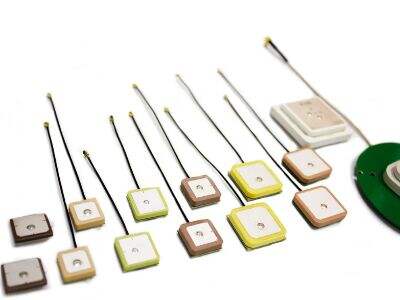Engineers at Signal are looking into what makes GPS antennas tick in cars. They are examining the impact on these antennas of various frequency bands. So let’s find out what they"ve learned.
The Affect of Frequency Bands on GPS Antennas
In the case of automobiles, the frequency band utilized is critical. It can affect how well the vehicle gps antenna perform. Varying frequency bands can impact the accuracy and reliability of GPS signals. Signal’s investigations find that some frequency bands are better for cars as they offer better coverage and stability.
Evaluating GPS Antennas
Experts at Signal, meanwhile, have tested the way gps antenna for car work across various frequency bands for car navigation. They discovered that antennas with the higher frequency bands have stronger signals and are more accurate, especially in busy cities where signals can be mixed with one another. Antennas based on lower frequency bands, on the other hand, may provide better performance in quiet environments with fewer obstacles.
Impacts of Frequency Stripes on the Q of the Antenna
The performance of the GPS antennas in vehicles depends upon their frequency bands. Signal's work demonstrates that certain frequency bands can pose challenges for the antenna system because of signal distortion and interference, which ultimately could impact the accuracy of the GPS system. And if companies know which frequency bands cause worse antenna quality, they can choose better antennas for their cars.
GPS Antennas and Frequency Bands explained
So to see how frequency bands impact a GPS Antenna in something like a car, let’s take a look at what each band does. Higher frequency bands — L1 and L2, for instance — are popular in cars because they play nice in cities and give you more precise location data, according to Signal’s experts. Shorter frequency bands, such as L5, might work better for scenario’s that require a lot of precision and reliability.”
Conclusion on Frequency Bands and GPS Antenna
Signal's study eliminates some misconceptions to the pragmatic role of frequency bands in cars, but Signal also contributes to our understanding of the association between GPS antennas and frequency bands. Understanding how different frequency bands influence the quality and accuracy of GPS systems will allow companies to better optimize their GPS systems in cars. Whether you're driving through city streets or connecting from a remote area, selecting the right frequency band for GPS antennas is critical for precise and reliable positioning data.

 EN
EN
 ES
ES
 PT
PT
 NL
NL
 AR
AR
 HR
HR
 CS
CS
 DA
DA
 FI
FI
 FR
FR
 DE
DE
 EL
EL
 IT
IT
 JA
JA
 KO
KO
 NO
NO
 PL
PL
 RO
RO
 RU
RU
 SV
SV
 TL
TL
 IW
IW
 ID
ID
 LT
LT
 SR
SR
 SK
SK
 SL
SL
 UK
UK
 VI
VI
 ET
ET
 HU
HU
 MT
MT
 TH
TH
 TR
TR
 FA
FA
 GA
GA
 BE
BE
 IS
IS
 LB
LB
 BG
BG

/images/share.png)

